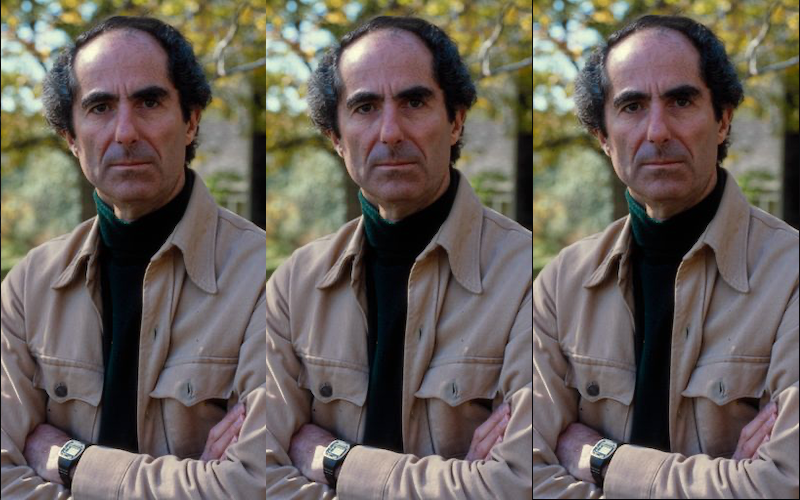
Why Philip Roth, Why Now?
Answers from Susan Choi, Ayad Akhtar, and Other Participants of “Philip Roth Unbound: Illuminating a Literary Legacy” Festival
Image courtesy of Bernard Gotfryd, Library of Congress.
When Philip Roth died in 2018, media was saturated with coverage, testimonials and commemorations of the writer, and rightfully so. A towering voice in American letters for more than half a century, Roth had delighted, entertained and provoked readers with his complex portraits of characters chafing against the constraints of expectation and convention, infusing each of his books with humor, wit, moral seriousness and social hypotheticals that feel eerily prescient today—about the relationship between our private lives and the public interest; on our attitudes toward sex, race, faith, and Jewish identity in particular; the limits of speech, religious transgression, political correctness, outrage, shame, betrayal, loyalty and our relentless obsession with prestige.
No aspect of behavior was spared his withering gaze—everything and everyone were fair game. Including Roth. 1959’s “Defender of the Faith,” an early Roth story about a Jewish Army sergeant and the Jewish draftee who repeatedly seeks favors from his superior, was received with both acclaim and outrage upon its publication, prompting accusations of anti-Semitism. As was “Epstein,” the story of a 60-year-old adulterer caught having an affair with his neighbor. And worse was yet to come.
Thinly veiled racism, misogynistic depictions of women—these and similar charges dogged Roth from book to book. And yet, Roth’s willingness to wrestle with our worst impulses and his ability to transform what he viewed as our most human imperfections into art blew the doors off what was possible in fiction for a generation of writers and readers.
Again and again Roth was taken to task by his critics, and again and again he turned those criticisms around to remind us that the most “ruthless antagonist” tended, in the end, to be oneself. “It is difficult, if not impossible,” he pushed back in a Commentary Magazine column responding to critics in 1963, “to explain to some of the people claiming to have felt my teeth sinking in, that in many instances they haven’t been bitten at all.”
*
In late 2021 I was connected with John Schreiber, President and CEO of Newark’s New Jersey Performing Arts Center, who introduced himself by saying that he had what he thought might be a terrible idea, an event he’d been thinking about producing for years: a celebration of the life and work of Newark-native Philip Roth, timed to what would have been the late novelist’s 90th birthday.
Wherever one lands in the Roth debate, he is inarguably among the most important and influential novelists our nation has produced—like him or loathe him. Even so, I understood perfectly well what John meant by “terrible.” The publication of Blake Bailey’s biography of Roth in April 2021, and allegations that the biographer had harassed, groomed, and even raped multiple women seemed, at least from where I sat (a former publishing executive, would-be writer, lifelong reader and fan of Roth’s work) to have been conflated with the life and legacy of the late novelist himself.
John’s good joke about a bad idea notwithstanding, he had nevertheless raised an important question, especially so in the wake of #MeToo, George Floyd, and the many long-overdue cultural and political correctives that followed: How do icons of twentieth century literature read through a twenty-first century lens? Do they hold up? The world had changed. What was in questionable taste just a decade ago was now cancellable, for better and worse. Was this in fact a bad idea, or an opportunity for a bigger conversation?
That first call from John was followed by several more with a group that included Rosemary Steinbaum, a trustee of the Newark Public Library, and Chelsea Keys, NJPAC’s Senior Director of Strategic Initiatives, as well as a months-long series of calls, zooms, coffees, lunches and dinners with a select group of writers, scholars (admirers and critics alike) and friends of Roth’s, which we hoped might provide us the necessary historical, literary and cultural context for developing a festival in his name.
And when we came up for air, we realized we had what amounted to a blueprint for PHILIP ROTH UNBOUND: Illuminating a Literary Legacy, a three-day series of performances, provocative conversations, late-night stand-up and spirited public debates designed to celebrate—and yes, sometimes challenge—the significance and impact of Roth’s singular literary legacy, and use his writing as a springboard to explore the broader questions it raises about life in America today.
Among the questions that have come up again and again over these last few years are Why Roth? And Why Now? Several of the participants in this weekend’s celebration take a stab at answering those questions.
–Cary Goldstein, co-producer
*

From the vantage point of Roth’s 90th, I can’t think of a writer who saw our nation more clearly, whose books more vividly embody its haunted, vital, coursing energy. Reading his work is still thrilling to me, its infectious intellectual static, its sublime fusion of the personal and political, and perhaps above all, the whiplash swing and staggering beauty of the American language as it flows into us from its pages. We need him more than ever.
–Ayad Akhtar, author of Homeland Elegies and Disgraced, winner of the Pulitzer Prize
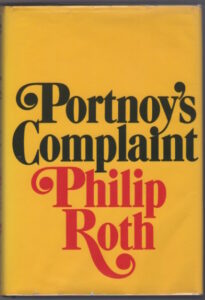
My 84-year-old mother is the youngest of nine siblings born to Russian-Jewish immigrants; transpose Philip Roth into her family and he would have been her nearest older brother, disgusting her sometimes but comforting her perhaps more often. Instead, she’s had to read him to know him. She started to just recently. She put down Portnoy (“Disgusting”), then couldn’t put The Plot Against America out of her mind. “I wish he hadn’t died,” she told me sadly. When I asked why, she said, “There’s so much I could have talked with him about.”
I feel the same way.
–Susan Choi, author of Trust Exercise, winner of the National Book Award for fiction
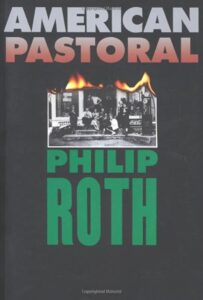
It is difficult to think of a contemporary writer who compels readers to confront life more directly than Philip Roth. His honesty about the clamorous insistence of one’s own body, the pleasures and loneliness of freedom, the capacity of reading—so central to all he did as a novelist—to illuminate and obstruct, this and more sets him apart as an urgent, essential voice. The book I’m writing explores how Roth—so candid and so secretive—drew on his own life and much else to produce extraordinary art.”
–Steven J. Zipperstein, Daniel E. Koshland Professor in Jewish Culture and History at Stanford University and currently at work on a biography of Philip Roth for Yale’s Jewish Lives
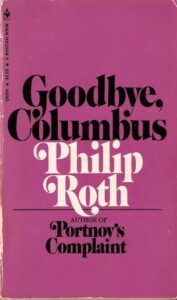
Newark has a rich artistic history, from jazz legends Sarah Vaughan and Wayne Shorter to poet and playwright Amiri Baraka, and so many more. Philip Roth was one of the most singular and challenging voices in American fiction over the last 75 years. And while the Newark of Roth’s youth has transformed, its essential qualities remain —innovation, creativity and grit. In presenting Philip Roth Unbound we have the opportunity to invite patrons into a unique and vibrant environment of discussion and examination, not only of a writer’s life and work, but of Newark and the nation as well.
–John Schreiber, President & CEO, New Jersey Performing Arts Center
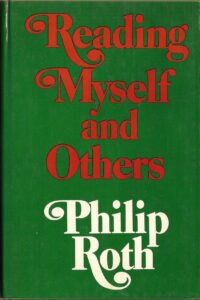
It’s easy to wish Philip Roth were still around and producing work so he could give us the novel we all now want him to write; one that finds the humanity in the madness of the era even as it excoriates the hypocrisy and sloth that brought the madness about. But the truth is he already wrote that novel. He wrote it again and again, with dazzling form and devastating relevance each time. Even when he exasperated us, he never lied to us.
–Meghan Daum, author of The Problem with Everything and host of The Unspeakable podcast
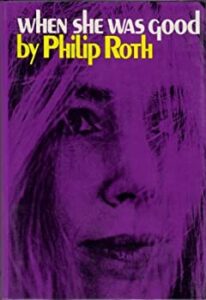
A towering voice in American letters for more than half a century, Philip Roth delighted, entertained and provoked readers with his complex portraits of characters chafing against the constraints of expectation and convention, and infused each of his books with observations and hypotheticals that feel eerily prescient today—about the relationship between our private lives and the public interest; sex, race, faith, and Jewish identity; the limits of speech, religious transgression, political correctness, moral outrage, shame, betrayal, loyalty and our relentless obsession with prestige. Again and again he was taken to task by his critics, and again and again he reminded us that the most “ruthless antagonist” was oneself.
–Cary Goldstein, co-producer, “Roth Unbound”
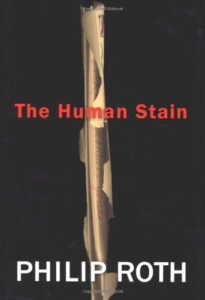
Reading just a few sentences of Roth’s work is like drinking a cup of strong coffee on a slow day. It’s inspirationally energetic and vividly alive. I admire his courage, his determination to say: This happened. This is happening. This is how (some) human beings are, whether we like it or not.
–Francine Prose, bestselling author and National Book Award finalist
___________________________
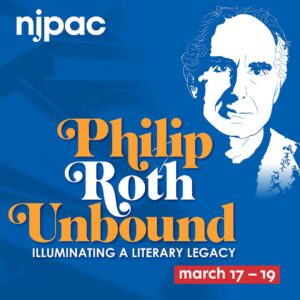
PHILIP ROTH UNBOUND is produced by New Jersey Performing Arts Center and co-produced by Newark Public Library Trustee Rosemary Steinbaum and publishing and media executive Cary Goldstein. James Shapiro, the Larry Miller Professor of English at Columbia and Shakespeare Scholar in Residence at the Public Theater, serves as Literary Advisor to the festival, with additional curation from Bernard Schwartz, Director of the Unterberg Poetry Center at the 92nd Street Y, New York. The Festival is supported by Sharon and Jon Corzine, The M & T Weiner Foundation and Judith Lieberman.
Festival highlights include a dramatic reading of The Plot Against America, starring Sam Waterston, Tony Shalhoub, S. Epatha Merkerson, Eric Bogosian, Peter Riegert, Michael Benjamin Washington, Marjan Neshat, Jane Kaczmarek and Cynthia Nixon, adapted for the stage by renowned Shakespeare scholar James Shapiro and co-presented with 92nd Street Y, New York; a sneak preview of John Turturro and Ariel Levy’s stage adaptation of Sabbath’s Theater, Theater, featuring John Turturro and Jason Kravits; “Defender of the Faith,” one of Roth’s earliest and most beloved — and most controversial — short stories, read by Morgan Spector; and a pair of dramatic readings that feature two of Roth’s most brilliant reflections on his hometown of Newark, performed by Matthew Broderick and Peter Riegert.
Complementing this remarkable collection of dramatic talent will be a roster of more than 25 of today’s most influential writers and thinkers in an array of discussions and debates, including Gary Shteyngart, Francine Prose, Sean Wilentz, Ayad Akhtar, Ottessa Moshfegh, Philip Gourevitch, Darryl Pinckney, Susan Choi, Jean Hanff Korelitz, Claudia Roth Pierpont and Meghan Daum, and many more.
The festival’s complete event schedule, a full list of participants, and links to purchase tickets can be found at www.rothunbound.org.



















